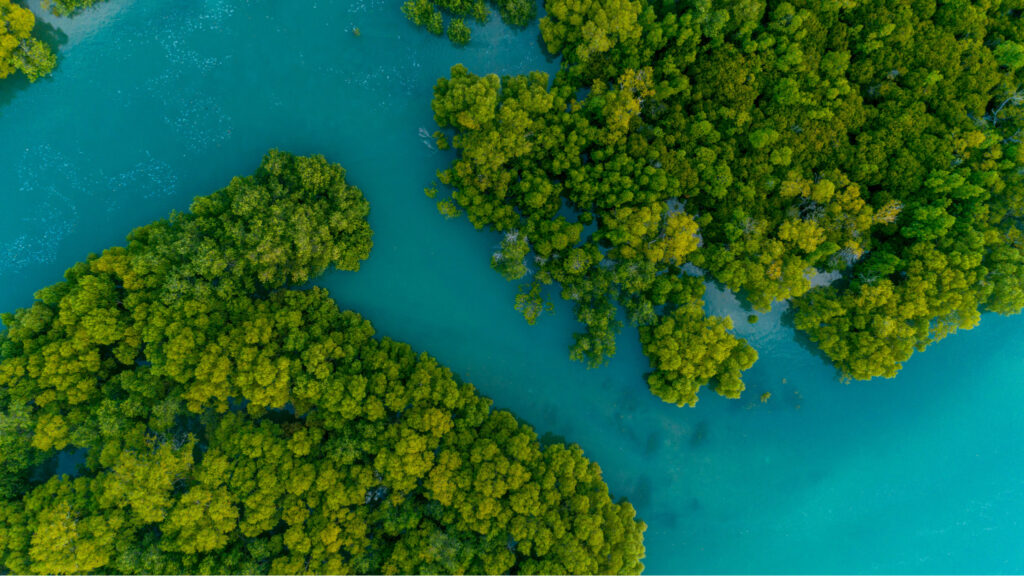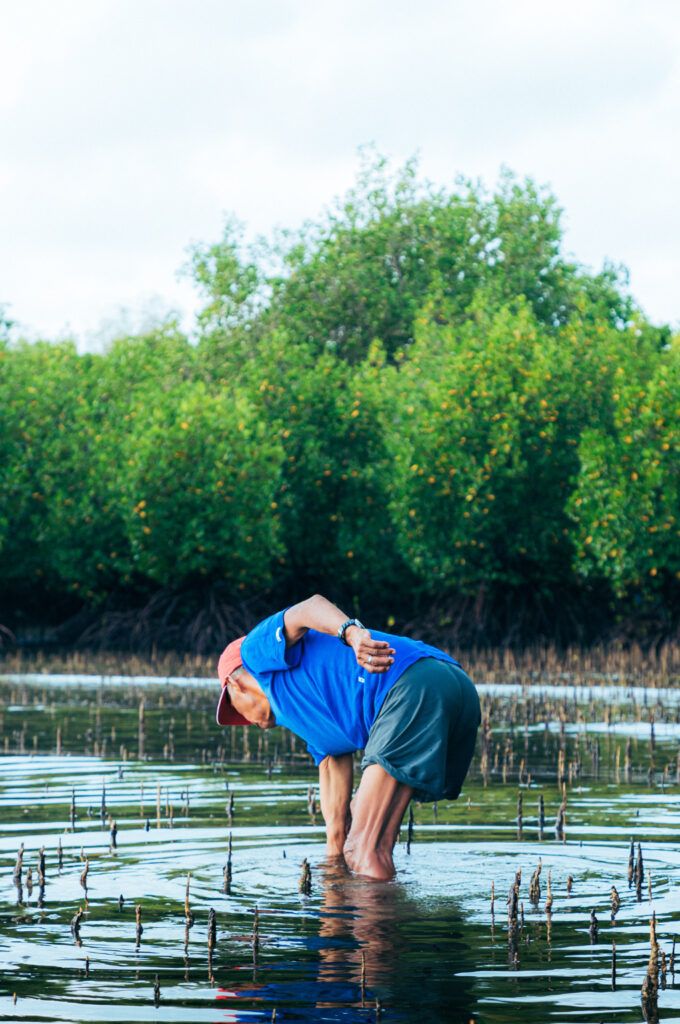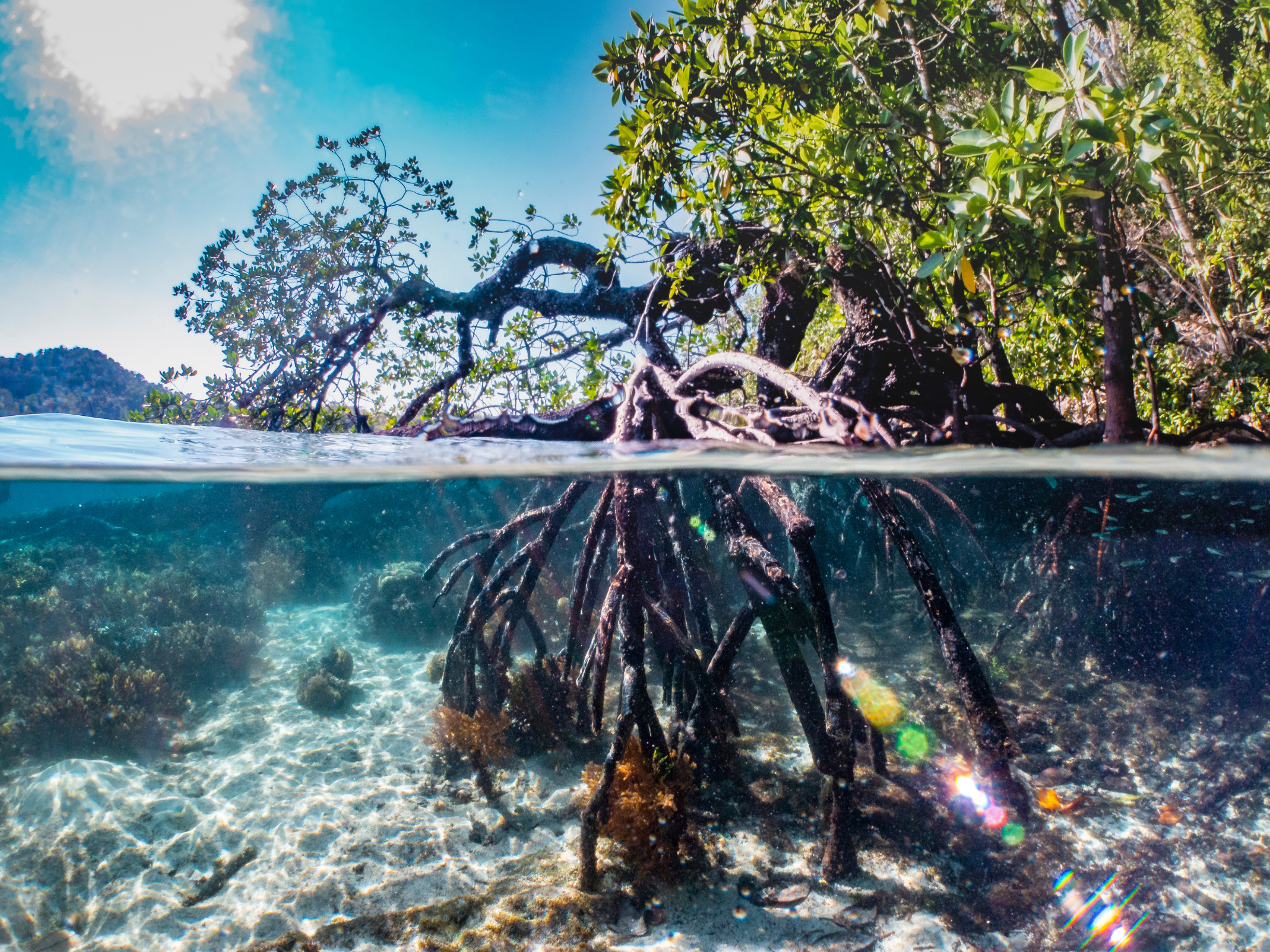AXA & ClimateSeed Unveil Insurance Policy for Mangrove Forest Protection in Mexico
6 Mins Read
Mangrove forests in Mexico have undergone mass deforestation over the years, alongside hurricane damage that has adversely affected local populations, but a new insurance policy aims to protect the fishermen restoring swamps in the Yucatán Peninsula.
In the last 20 years, 35% of the world’s mangrove forests have disappeared – that number rises to 70% in certain areas. This is due to a host of human causes and natural climate events, from deforestation and urbanisation to rising sea levels and cyclones.
But even though the rate of mangrove forest loss has slowed in recent years, climate change and natural disasters are unpredictable, and can hit swamps and local communities hard. In fact, it’s estimated that a further 10-15% of mangroves could be lost by the end of the century, and this already results in damages worth $6-42B annually.
To safeguard conservation efforts and protect the livelihoods of local populations in Mexico’s Yucatán Peninsula, French insurance company AXA and environmental consultant ClimateSeed have introduced a climate insurance policy focusing on the San Crisanto mangrove forests.
Why mangroves are a climate boon

Mangrove forests are unique wetland ecosystems and play a huge role in tackling climate change, reducing the impact of coastal flooding and supporting areas rich in biodiversity. They are powerful carbon sinks that have been capturing CO2 for over 5,000 years – in fact, they can store up to four times as much carbon as other tropical forests.
These swamps are found in over 120 countries and cover 150,000 sq km in area, with over 100 million people living within 10km of large mangrove forests. They provide ecosystem services worth $33,000-57,000 a year, and one mangrove first in Mexico (which houses 6% of the world’s total) is actually the last remnant of a 110,000-year-old lost world.
But, as mentioned above, mangroves are disappearing, through a combination of human acts like fish farming, coastal urbanisation and pollution, and natural disasters such as tropical cyclones, storms, erosion, and rising sea levels. The loss of these forests as a result of deforestation is taking away their ecosystem-supporting abilities. Mangroves also have a tricky relationship with the fossil fuel industry – they have been subject to oil spills, and in Mexico, the state-owned oil company Pemex defied a government order by felling protected mangroves for the construction of an $8B, president-ordered oil refinery.
Meanwhile, in the Yucatán Peninsula (home to two-thirds of Mexico’s mangrove reserves), there’s a fisherman community of over 150 Mayan families, called San Crisanto. Their economic activity is built around 800 hectares of mangrove swamps through restoration and conservation activities, which have been financed through the sale of carbon credits, as well as the development of ecotourism.
San Crisanto’s restoration project has captured about 48,000 tonnes of CO2 (in collaboration with local communities). Moreover, it has continued encouraging the implementation of a community-based sustainable development programme, alongside new sources of income. This demonstrates an ability for such initiatives to evolve into viable offset projects that can support local communities and natural habitats.
However, this community has been highly exposed to climate stress – and not just recently. Case in point: in 2002, Hurricane Isidore destroyed 99% of the area’s mangroves, which gave way to heavy flooding and halted any local economic activity.
AXA and ClimateSeed’s insurance policy for San Crisanto

To strengthen San Crisanto’s climate resilience AXA Climate, AXA Seguros Mexico (the environmental and Mexcian arms of the insurer, respectively) and ClimateSeed have come up with a parametric insurance product specific to the restoration project’s requirements. Parametric insurances are index-based policies that guarantee a payout based on a specific, pre-determined event (like weather events) occurring, instead of calculating the exact losses suffered.
AXA and ClimateSeed’s policy protects San Crisanto against hurricanes – as soon as one hits the protected area, a compensation of up to $100,000 is automatically triggered to the policyholder – i.e., the local community – for adaptation efforts to respond to the damages. The exact amount varies according to the wind strength and how close the hurricane is to the core of the protected area.
The companies argue that this will help regenerate a thriving ecosystem, while ensuring the sustainability of the associated carbon offsets. “With this initial parametric insurance guarantee hinging on the restoration of mangrove forests, we’re taking an innovative step to serve local communities whose survival is intrinsically linked to these forests,” said AXA climate CEO Antoine Denoix.
Sébastien Nunes, CEO of ClimateSeed, which has been a partner of the San Crisanto Foundation since 2020, added that this private-sector collaboration will “enable the foundation to further overcome the financial obstacles and continue with its commitment to the conservation and restoration of mangrove forests”.
The need for climate adaptation finance

While much more investment is needed for climate change adaptation, it’s a positive sign from an insurance sector that has faced “mounting losses” due to extreme weather events. A 2019 survey of global insurance companies revealed that 72% believed climate change would affect their business, but 80% had not taken significant mitigation steps. More starkly, one estimate from last year said only 8% of insurers are preparing adequately to manage the impacts of the climate crisis.
This is why AXA and ClimateSeed’s product is a critical piece of adaptation finance, which was announced during COP28. Here, such funding was in full focus as part of the Global Goal on Adaptation, which states that countries must have a detailed plan to adapt to climate change by 2025, and must show progress in implementing that strategy by 2030. It has also been criticised by nations for not going far enough.
At a panel on women and climate resilience, former US secretary of state Hillary Clinton called for a reform of the insurance industry, with companies Increasingly withdrawing financial aid to protect against climate events. “We need to rethink the insurance industry,” she said. “Insurance companies are pulling out of so many places. They’re not insuring homes. They’re not insuring businesses.”
To that point, Insurance Europe reconfirmed its commitment to tackle climate change and overcome “climate protection gaps”. Meanwhile, Mexico’s ministry of finance and public credit, the Insurance Development Forum, UNDP and the German government joined forces last year to develop an insurance programme for climate-vulnerable farmers, in a strong example of public and private sector partnerships for adaptation finance.
AXA Seguros Mexico CEO Daniel Bandle noted how parametric coverage has been vital for resource provision and natural disaster adaptation in Mexico. Explaining how such insurance projects can act quickly, he said: “During Hurricanes Otis and Lidia, the small businesses covered under Ayuda Express Huracán received MXN 10,000 ($586) within 72 hours, and more than 1,430 farmers received MXN 2,200 ($129) per hectare damaged during Hurricane Agatha in 2022.”
José Inés Loría Palma, president of the San Crisanto Foundation, added: “Our commitment as a community to nature commits us to putting our greatest effort and always looking for better alternatives for its conservation. Our mangroves are the essence of the community, without them San Crisanto disappears. Insuring the mangroves strengthens its permanence and gives more certainty to San Crisanto.”




